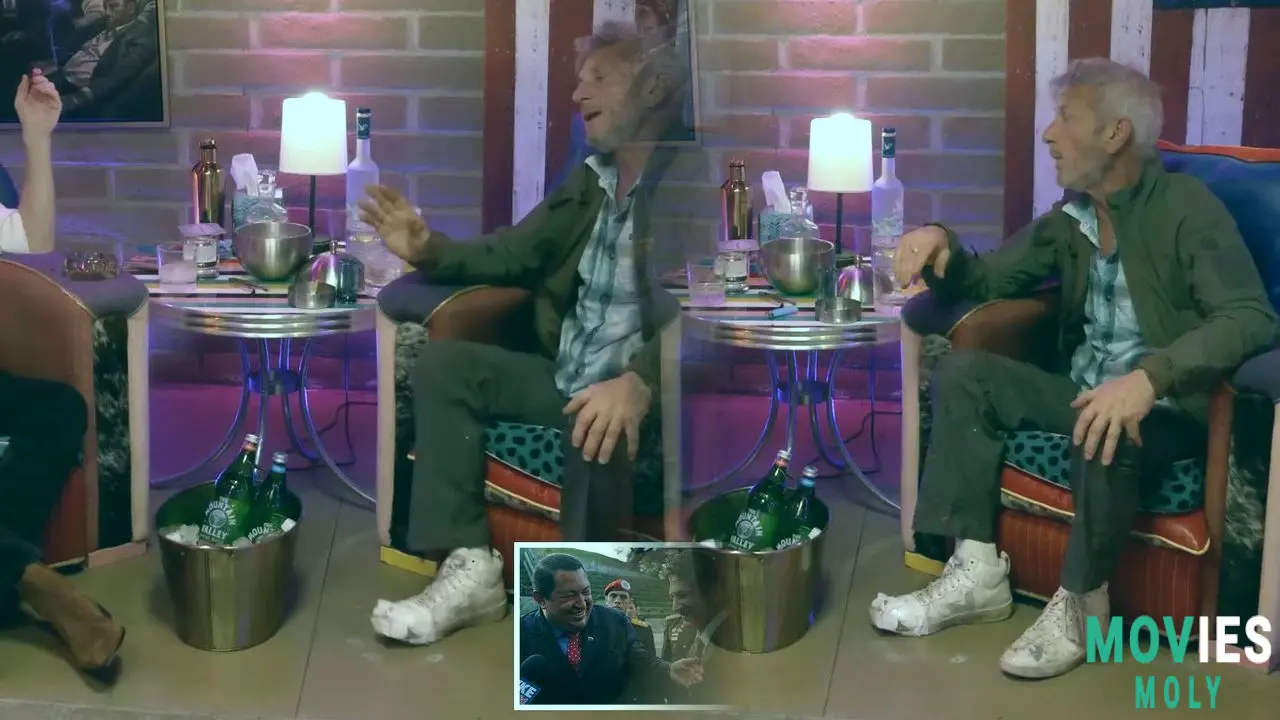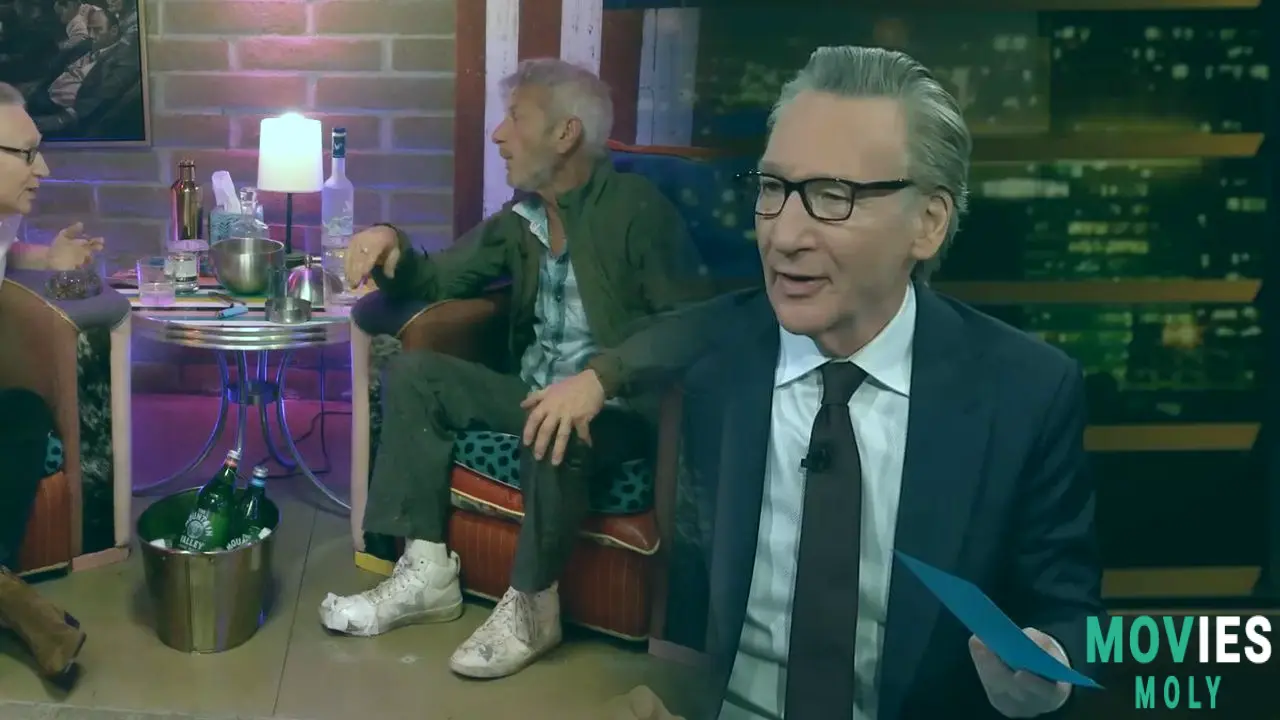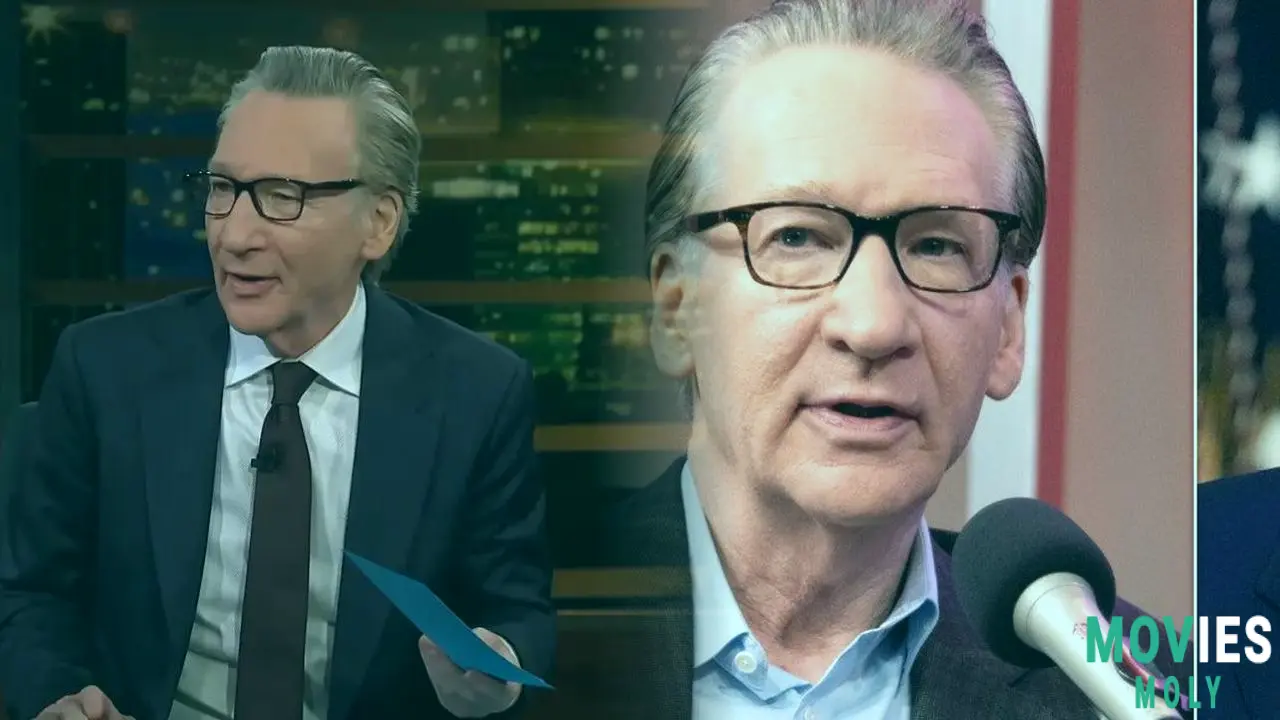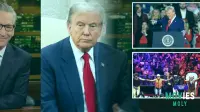Bill Maher recently spoke out about Terry Moran, a former ABC correspondent. Moran launched an anti-Trump tirade on social media. This resulted in ABC dropping him. On the "Overtime" segment of his show, "Real Time With Bill Maher," Maher stated that he considers reporters like Moran to be unbiased. He couldn't believe what Moran had written.
"This guy's a reporter, what the f---?" Maher stated. His guest, Ian Bremmer, concurred. Bremmer said "lots of jobs" allowed you to post what Moran did on social media. He later clarified that journalism is not one of those jobs. Moran claimed on social media on June 8 that Trump and White House deputy chief of staff Stephen Miller were "world-class" detractors. He eventually erased the post. ABC News originally announced Moran's suspension. They eventually decided to split ways with him.
"Lots of jobs you can have and do that, that is the one job I'm looking at you to be impartial, just give me the facts, I don't need to know this from you, Terry Moran," Maher went on. Maher even used Moran's portrayal of Miller. Moran had written: "Miller is a man who is richly endowed with a capacity for hatred, he's a world-class hater, you can see this just by looking at him, because you can see that his hatreds are his spiritual nourishment, he eats his hate." This seems quite aggressive language for a reporter.
Bill Maher discusses journalistic neutrality and what it means now.Examining the Controversial Social Media Post That Cost A Reporter His Job.
Shortly after Moran was suspended, ABC News announced that the long-time correspondent would be leaving the network. A representative for ABC News confirmed the decision. They clarified: "We are at the end of our agreement with Terry Moran and based on his recent post - which was a clear violation of ABC News policies - we have made the decision to not renew." They also emphasized that ABC News expects all reporters to maintain high levels of neutrality, fairness, and professionalism. They remain devoted to providing straightforward, trustworthy journalism.
Former ABC News employees also discussed Moran's diatribe. They expressed disappointment. According to one staff member, Terry is well-liked at ABC. "Nobody thinks Terry is a bad person," the staffer stated. "But this was a very, very stupid thing to do in a time where all of our credibility is on the line." They also stated that the entire news business is working hard to build trust. "You tweeted something that upset all of us. They said, "We don't need this sh-t." "It sucks. It really sucks." Moran promptly joined Substack after leaving ABC News. He wrote his first Substack post, "We will lose this democracy if we do not use our voices." This demonstrated that he still wanted to speak freely.
Bill Maher had a heated discussion with Sean Penn about meeting Donald Trump.

The talk-show host defends his White House dinner to a skeptical Hollywood star.
Bill Maher recently lost his cool with Sean Penn on a "Club Random" podcast episode. Penn questioned Maher's decision to attend dinner with Donald Trump. Maher mentioned his infamous dinner with Trump. Penn responded by expressing concern over Maher's handling of his White House visit. This infuriated Maher. He assaulted Madonna's ex-husband over his own dinner guests. Maher inquired: "Really, you'll meet with f---ing Castro and Hugo Chavez but not the President of the United States?" I think this was a very strong point.
Maher's dinner with Trump occurred in April. Their mutual acquaintance Kid Rock arranged it. Maher justified the dinner, stating, "There's got to be something better than hurling insults from 3000 miles away." He later discussed the two and a half-hour dinner on "Real Time with Bill Maher." He stated that they discussed the Gaza War, Iran, and Trump's potential third term. On the "Club Random" podcast over cigars, booze, and smokes, Maher questioned Penn if he thought he did the right thing by having dinner with Trump.
Penn responded, "Absolutely, you're so smart, you go there... look, this is the President of the United States; whether we like it or not, it makes no difference. There are numerous reasons why I was speculating... it would be beneficial for you to do so." The actor stated that he watched Maher cover the event on "Real Time." He wishes it had been "less successful." Maher replied that it was less successful because he never stopped talking the same things about Trump. He claimed it would only have been successful if Trump had persuaded him to endorse him.
Sean Penn's Perspectives on Trust and Influence When Engaging With Political Leaders

A Look At The Actor's Previous Meetings With Controversial Figures And His Reasoning
Penn responded that Maher could have "edited" more when recounting the events of the dinner. He believed Maher could have simply stated, "He treated me well; that's all." Sean Penn has numerous hobbies outside of his film profession. These include humanitarian journalism and politics. He even sought out Mexican drug kingpin Joaquin 'El Chapo' Guzman to try to get a movie contract. Penn claimed he had never been invited to eat with Trump. He went on to say that the only reason he wouldn't accept an invitation was because "it's a long flight."
Maher went on to respond: "Really, you'll meet with f---ing Castro and Hugo Chavez but not the President of the United States?" Sean Penn is well-known for his documented meetings with Cuban President Fidel Castro and his brother Raúl. He also met with Venezuela's outspoken president, Hugo Chávez. Penn appeared to stutter slightly before responding, "I, I, saw good results come out of some of those things..." When Maher intervened, Penn clarified, "I just personally wouldn't trust anything that was said in the room, including personality."
Maher responded, "It's not an issue of believing it; it's a matter of seeing it, living it, and knowing it... I'm telling you, there's a completely different guy behind closed doors in a different atmosphere." Maher then offered to get Penn an invitation to a future Trump dinner. This could be to discuss political or charitable topics. Penn appeared uneasy. He claimed he wouldn't delude himself into thinking he'd "get anywhere with him." He responded: "I know that I wouldn't, I know that I would have no influence." Maher described Penn's attitude as "bad." He emphasized that Trump places a high value on personal relationships. "He's a starf---r, in a way. "I bet he'd like to meet you," Maher informed Penn. This exchange demonstrated a significant difference in how the two individuals approached interactions with political officials.
Broader Implications of Public Debates on Media and Politics

Reflecting on Celebrities and Journalists' Roles in Public Discourse
These public arguments between Bill Maher, Terry Moran, and Sean Penn raise some important questions regarding media and politics. The termination of a journalist like Moran for expressing strong opinions on social media raises questions about where the boundary is for reporters. Is it possible to remain completely impartial in today's world? Maher seemed to believe so. He wants journalists to stick to the facts while keeping their personal feelings secret. But for many, especially in these divided times, that may be more difficult than ever.
Then there's the interaction between Maher and Penn. It demonstrates how many public people choose to interact with folks they disagree with. Maher believes in sitting and chatting. He believes that viewing someone in a different situation can provide new insights. Penn, on the other hand, appears to believe that some figures are not worth connecting with on an individual level. He believes it will be futile or possibly a betrayal of his own values. This disagreement in viewpoint is common in public life. This isn't just about these two men. It leaves you wondering which strategy is better for society. Is it better to always talk or to establish a strong line?
These moments reflect the persistent issues of trust in the media and politicians. When reporters are perceived as prejudiced, it harms their reputation. When public figures debate about basic involvement, it may be frustrating. It demonstrates that in a world where everyone has a platform, the rules of public discourse are still being worked out. I believe it is critical for us to continue monitoring these debates. They reveal a great deal about how people try to make sense of their surroundings.




